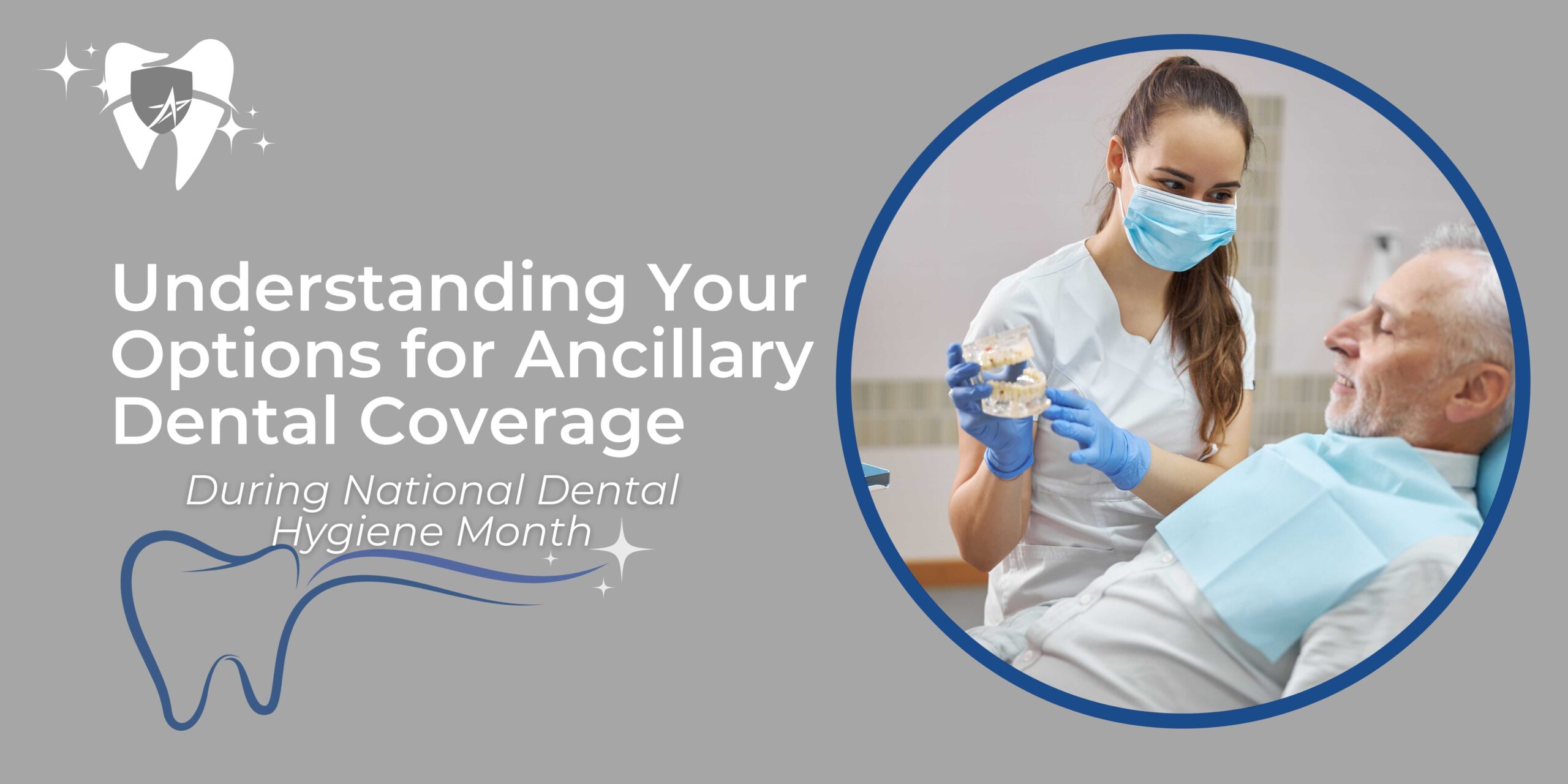
October marks National Dental Hygiene Month—a perfect time to focus on maintaining your oral health. For Medicare beneficiaries, understanding which dental services are covered by Medicare and where additional coverage might be necessary is key to overall well-being. This blog will explain what Medicare does and doesn’t cover for dental care and explore your options for additional (or ancillary) dental coverage.
What Dental Services Are Covered Under Medicare?
Medicare covers many healthcare needs, but routine dental services typically aren’t included. Original Medicare (Parts A and B) generally does not cover:
- Routine exams
- Cleanings
- Fillings
- Tooth extractions
- Dentures or dental implants
Medicare only covers dental care if it’s directly connected to a broader medical treatment. For example, if you need dental work due to an accident or as part of a medically necessary procedure (like preparing for surgery or treating a jaw-related condition), Medicare may step in. However, preventive and routine dental care is not covered.
Your Options for Ancillary Dental Coverage
Since Original Medicare doesn’t include routine dental care, many beneficiaries explore other options to maintain their oral health. Here are a few common solutions:
- Medicare Advantage Plans (Part C)
- Many Medicare Advantage plans offer dental benefits, covering routine services like cleanings, exams, and basic procedures. These plans are available through private insurance companies approved by Medicare, often providing broader dental coverage than Original Medicare. Be sure to review each plan’s specific benefits before enrolling, as coverage can vary.
- Standalone Dental Insurance Plans
- Some beneficiaries choose standalone dental insurance plans. Separate from Medicare, these plans offer a range of dental benefits. Coverage levels vary, so it’s important to pick a plan that suits your needs. Standalone plans often cover preventive services, fillings, and sometimes more advanced treatments like crowns or root canals.
- Dental Discount Plans
- Unlike insurance, dental discount plans provide reduced rates for dental services at participating providers. These plans don’t pay for the cost of services, but they can make routine care and more expensive procedures more affordable. Beneficiaries pay a membership fee and receive discounts on dental services.
- Medicaid
- If you qualify for both Medicaid and Medicare, you may have dental coverage through Medicaid. Benefits vary by state, so check the specific coverage offered where you live.
What Dental Services Are Typically Not Covered?
Even with additional coverage, some services are commonly not included:
- Cosmetic procedures like teeth whitening or veneers
- Orthodontic treatments (like braces), unless medically necessary
- Certain dental implants (depending on the policy)
- High-end or premium dental appliances
Make sure to thoroughly review any insurance or discount plan to understand what is and isn’t covered.
Maintaining Good Oral Health
Medicare may not cover routine dental care, but maintaining good oral hygiene is crucial. Regular brushing, flossing, and dentist visits for professional cleanings can prevent dental issues. If you need regular dental care or anticipate treatment in the future, exploring options for ancillary dental coverage can help manage costs without surprises.
For more information on Medicare and dental coverage options, consider speaking with a licensed insurance agent or visiting trusted Medicare websites.
During National Dental Hygiene Month, make your oral health a priority! Understanding your Medicare coverage and additional dental care options can help you keep your smile healthy for years to come. Contact our office to schedule a consultation to discuss your options in obtaining dental coverage.